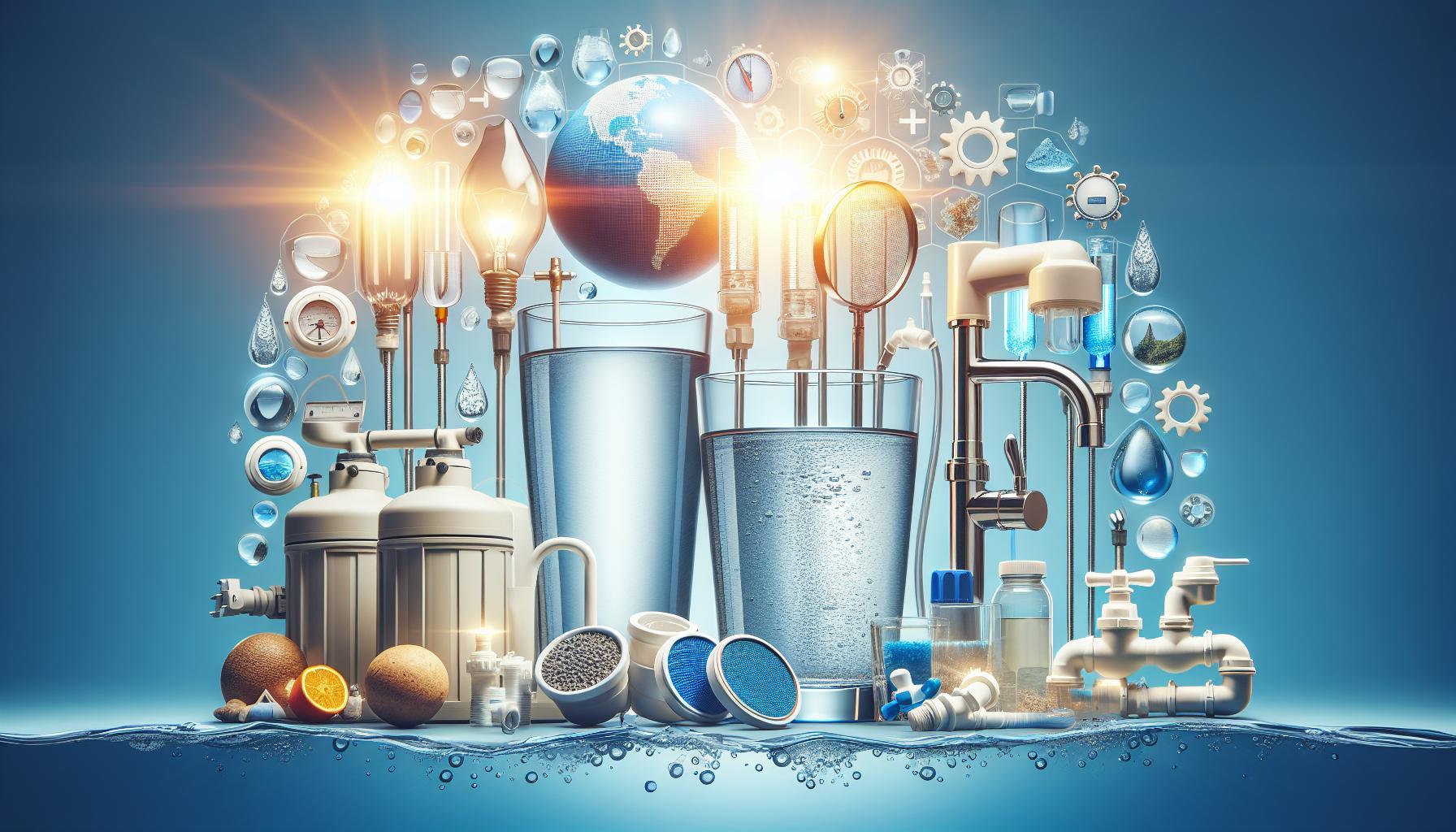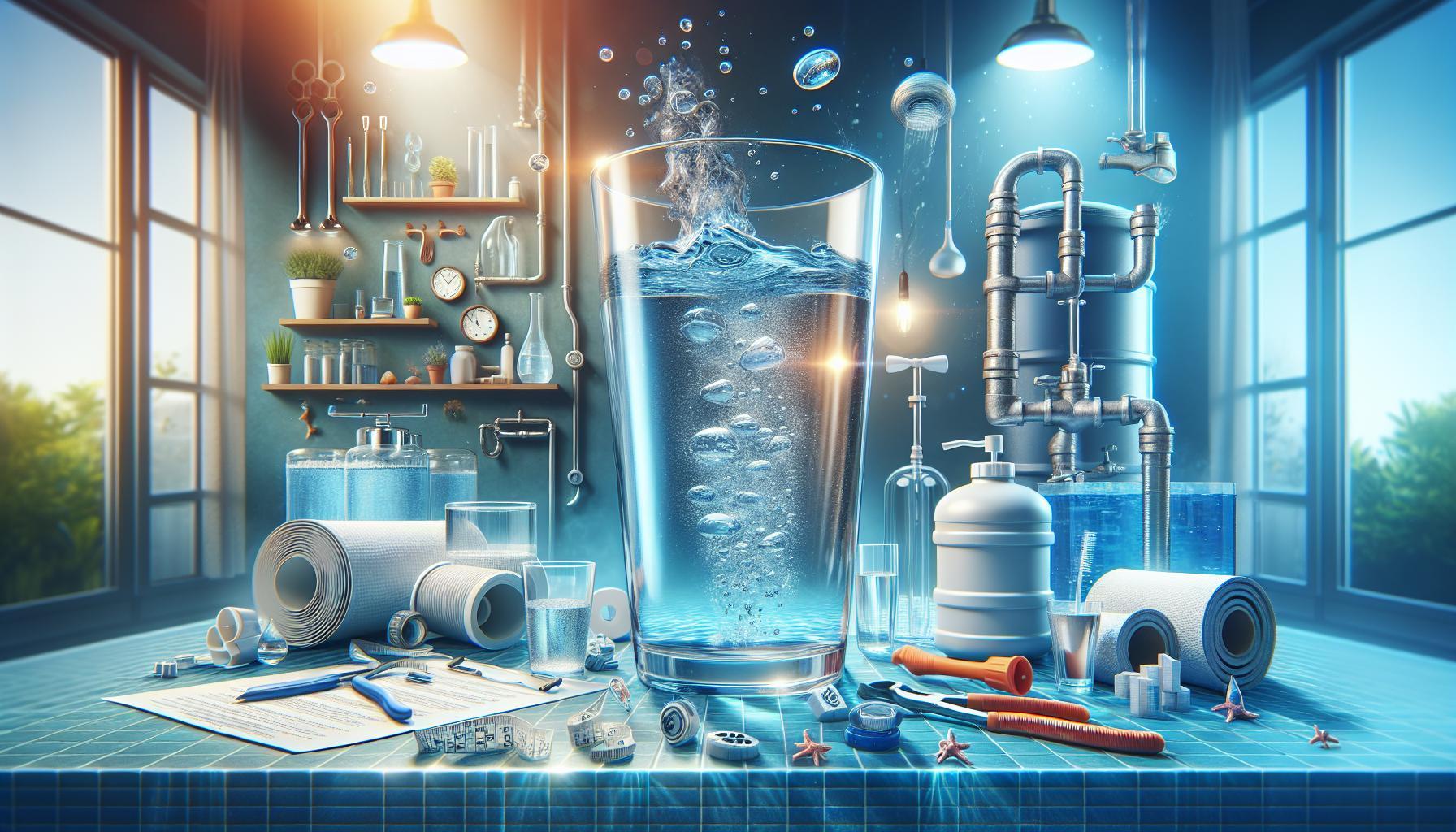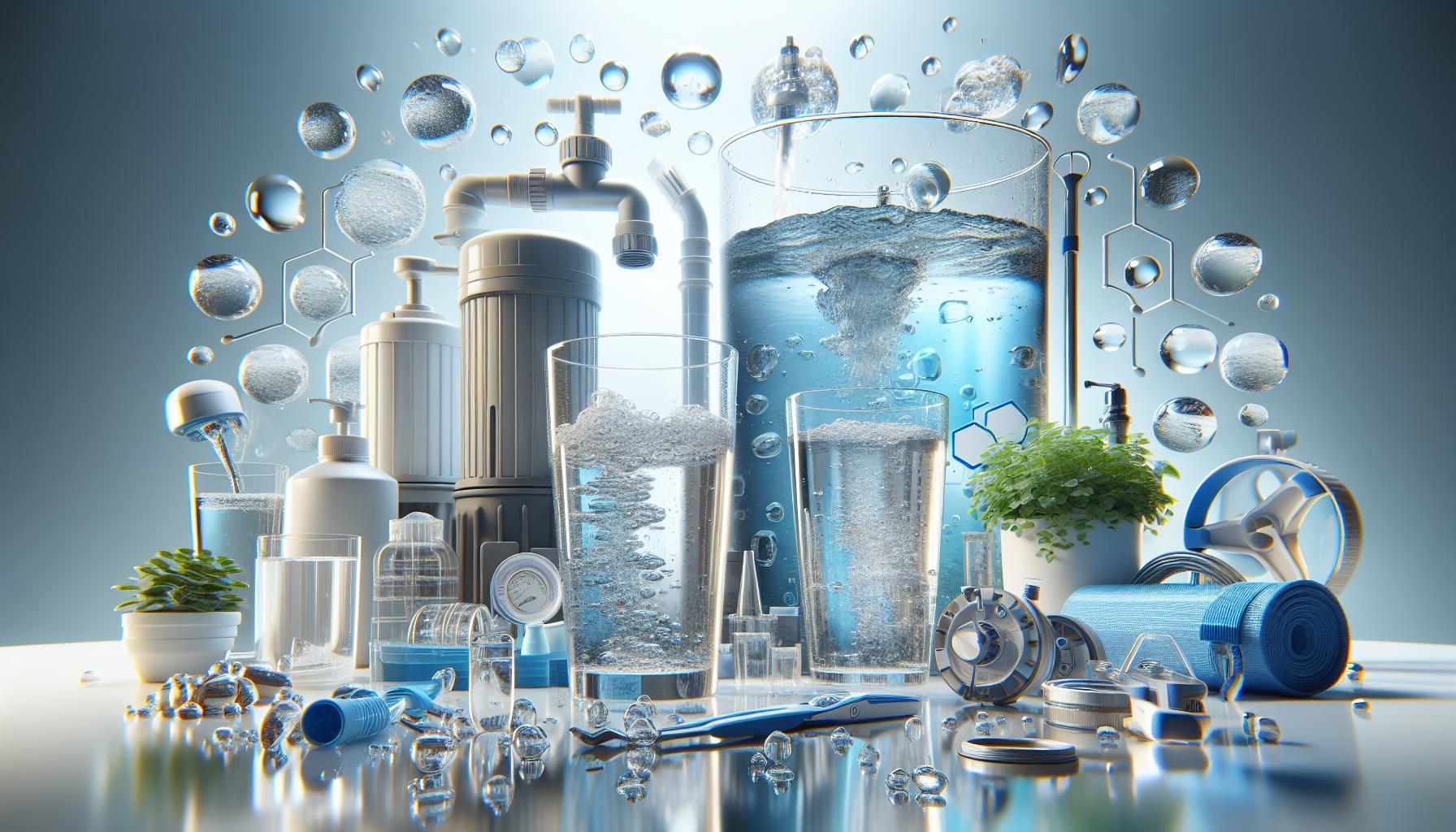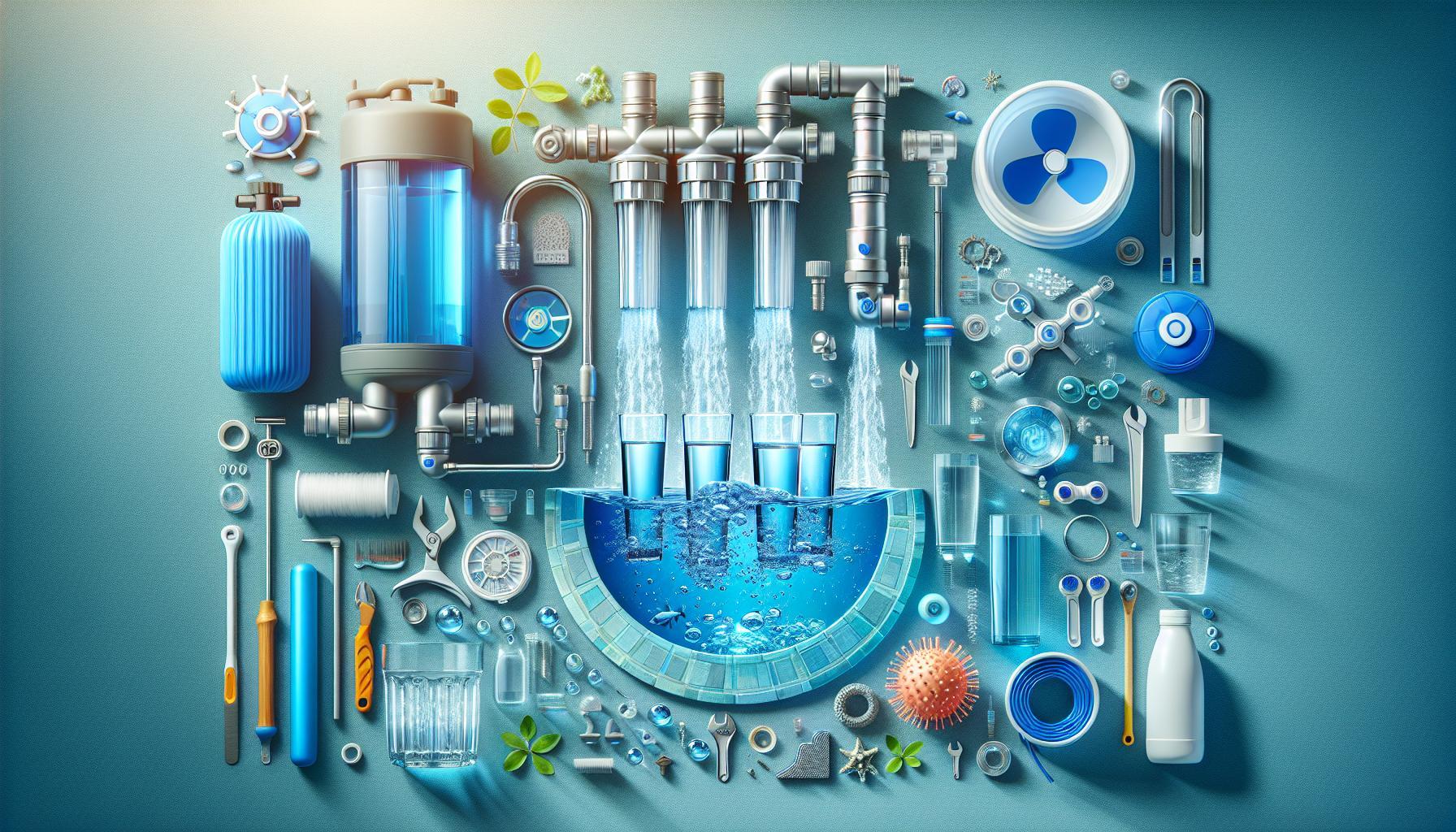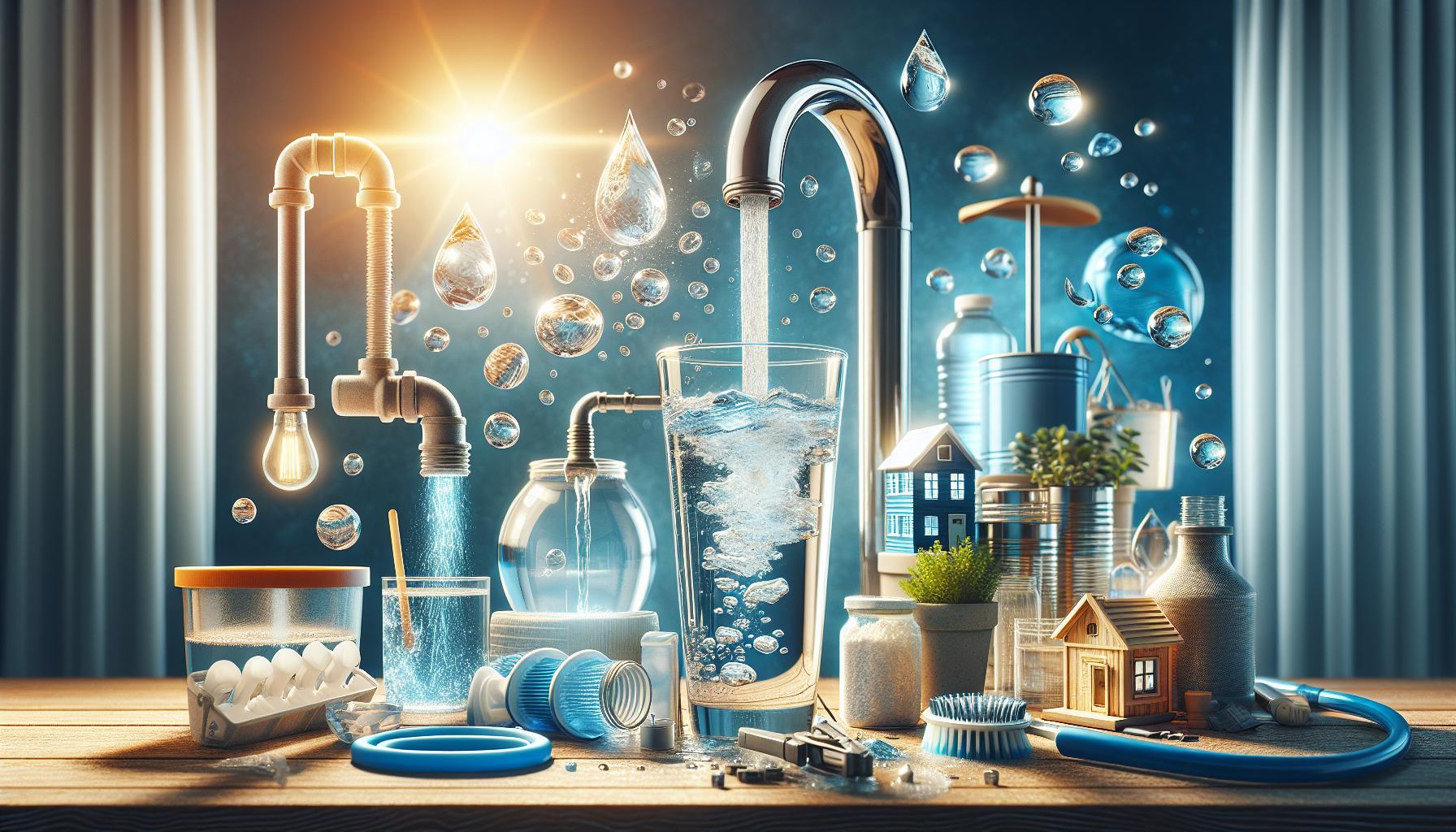Have you ever taken a refreshing sip of water only to be met with an unsettling stomach ache? Understanding why hydration can sometimes trigger discomfort is crucial for your health. From excessive consumption to underlying health issues, various factors could be at play when your stomach rebels after drinking water. Let’s explore the potential causes and solutions.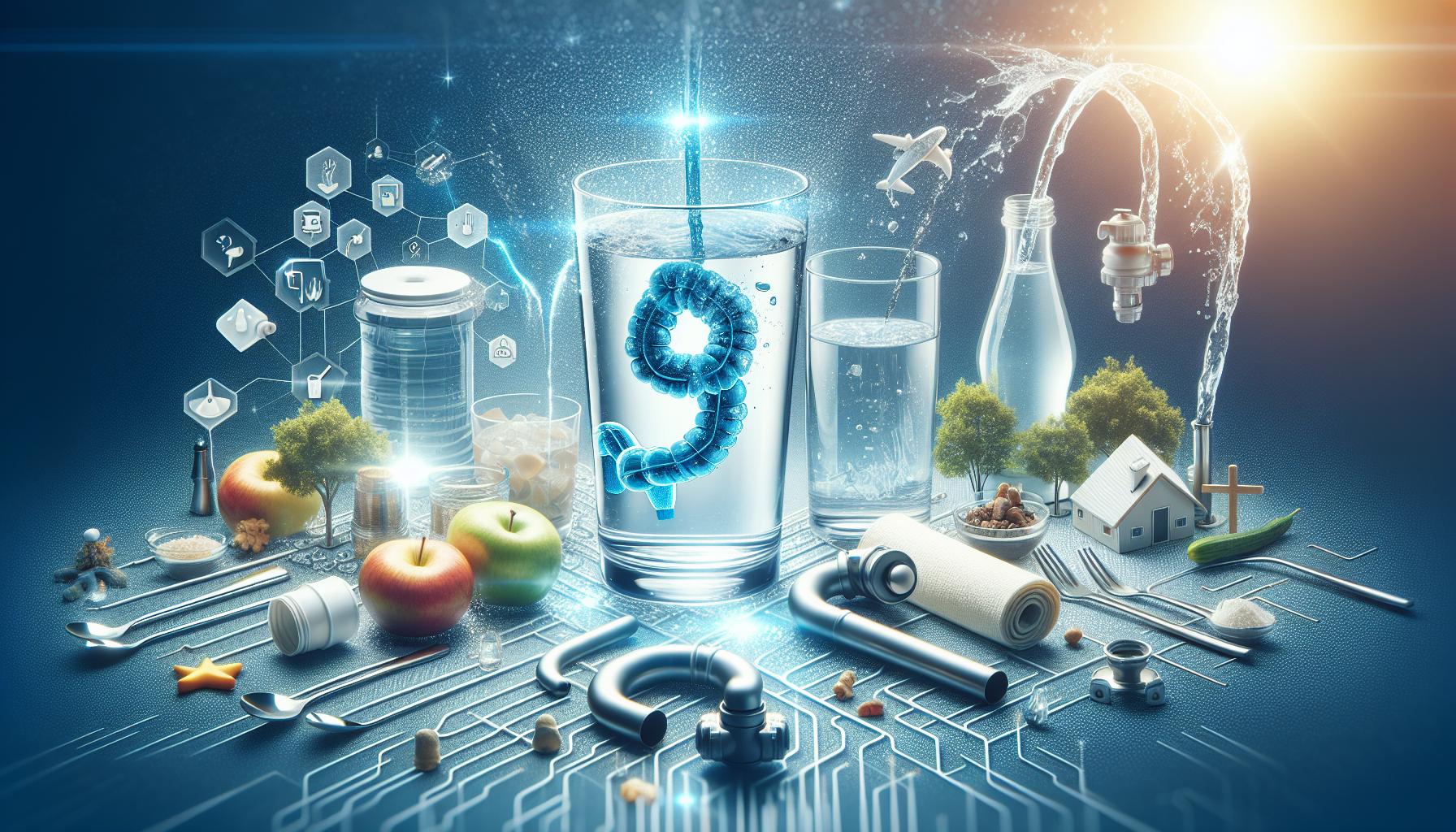
Understanding the Connection Between Water Intake and Stomach Discomfort
Experiencing discomfort after drinking water can be surprising, especially since hydration is essential for health. However, various factors can contribute to why consuming water may lead to stomach pain. This connection often revolves around both the quantity of water ingested and the individual’s underlying health conditions. Understanding these triggers can help you modify your hydration habits to maintain comfort while staying hydrated.
Factors Contributing to Stomach Discomfort
A primary reason for stomach discomfort after drinking water is the volume consumed at one time. When you drink a large amount of water, especially if you’ve been dehydrated, your stomach may react adversely. This is due to the stomach’s limited capacity and the pressure that larger volumes can exert on the gastric walls, leading to feelings of fullness, pain, or bloating. Ideally, you should aim to drink water consistently throughout the day rather than in large quantities at once.
Additionally, certain medical conditions can make the stomach more sensitive to water intake. For instance, individuals with conditions like acid reflux, gastritis, or irritable bowel syndrome (IBS) may find that drinking water exacerbates their symptoms. In the case of acid reflux, water can stimulate increased stomach acid production, which might lead to a burning sensation or discomfort as the acid irritates the esophagus and stomach lining [2[2]. Recognizing these triggers is crucial for tailored hydration strategies.
Practical Tips for Reducing Discomfort
To alleviate discomfort while ensuring appropriate hydration, consider the following strategies:
- Pace Your Intake: Drink smaller amounts of water throughout the day to prevent overwhelming your stomach.
- Monitor Temperature: Some individuals find that drinking water at room temperature is less irritating than cold water.
- Stay Mindful of Timing: Avoid drinking large amounts of water immediately before or after meals, as this can further induce discomfort.
- Identify Underlying Conditions: If you routinely experience pain after drinking water, consult a healthcare provider to rule out or manage conditions like gastritis or IBS.
These actionable steps can help mitigate discomfort while ensuring that your body remains adequately hydrated, enhancing overall well-being. Adjusting your water intake habits is a practical approach to addressing the question, “Why when I drink water my stomach hurts?” by uncovering the real causes of your discomfort.
Common Causes of Stomach Pain After Drinking Water
Experiencing stomach pain after consuming water is a concern shared by many, and understanding the potential causes can illuminate why this discomfort occurs. The gastrointestinal system, complex as it is, can react unpredictably to even the simplest of substances like water. Various factors can contribute to this sensation, ranging from consumption habits to underlying medical issues.
Drinking Habits
One common cause of stomach pain is consuming water too quickly. When large amounts of water are ingested rapidly, it can lead to stomach distension, which increases pressure on surrounding organs and results in discomfort. It might be helpful to sip water gradually, allowing the stomach to adjust without feeling overwhelmed. Additionally, drinking very cold water may provoke a reaction in some individuals, causing abdominal cramps or a sensation of heaviness.
Digestive Issues
Underlying digestive disorders play a significant role in stomach pain after drinking water. Conditions such as gastroesophageal reflux disease (GERD) can cause discomfort as water may lead to increased acid production, exacerbating symptoms. Furthermore, food intolerances, particularly to gluten or lactose, can manifest in discomfort upon hydration, as the body struggles to process both the water and the existing irritants within the digestive tract [[1]](https://aasem.org/stomach-hurts-after-drinking-water-heres-what-you-need-to-know/).
Temperature Sensitivity
Some individuals may also experience sensitivity to the temperature of the water being consumed. For instance, warm water is often gentler on the stomach than cold water. Research suggests that those with a sensitive stomach may do better with moderate-temperature beverages to minimize the risk of cramping or pain [[2]](https://wellnessderive.com/why-does-my-stomach-hurt-when-i-drink-water/).
Hydration and Diet
Lastly, hydration practices can intersect significantly with dietary habits. When water is consumed immediately before or during meals, it can dilute digestive enzymes, potentially leading to inefficient digestion. It’s often recommended to hydrate at least 30 minutes before meals, allowing the digestive system to work optimally and reducing the risk of discomfort afterwards [[3]](https://medshun.com/article/lower-abdominal-pain-after-drinking-water).
In summary, addressing the causes of stomach pain after drinking water involves examining drinking habits, digestive health, and overall dietary practices. By adopting gradual hydration techniques and being mindful of water temperature, individuals can often mitigate discomfort and promote better digestive health.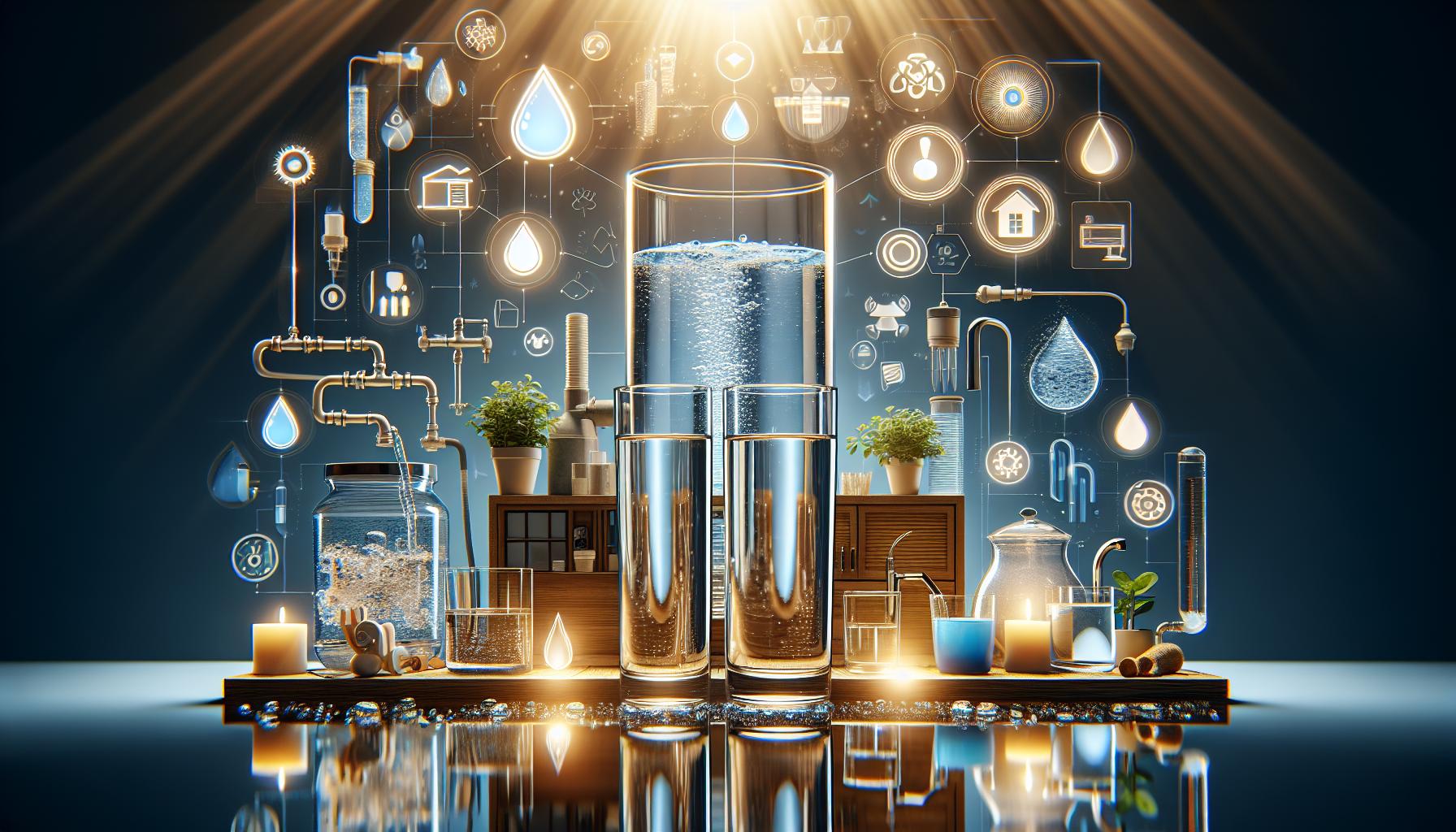
When to Consult a Doctor: Recognizing Serious Symptoms
Experiencing discomfort after drinking water can be puzzling and concerning. While minor stomach aches might not be alarming, it’s essential to recognize when symptoms escalate and could signify a more serious condition. Awareness of these signs is crucial for timely medical intervention, especially if the discomfort is persistent or accompanied by other alarming symptoms.
Identifying Serious Symptoms
If drinking water consistently causes stomach pain, it’s important to observe the circumstances surrounding the discomfort. Consider the following situations that warrant a doctor’s visit:
- Severe or Severe Pain: If the pain is intense and does not subside after a short time, it might indicate an underlying issue such as a gastric ulcer or gallbladder problem.
- Persistent Symptoms: Ongoing discomfort that lasts for several days, particularly if you notice other symptoms like nausea or vomiting, should not be ignored.
- Signs of Dehydration: If you’re unable to drink water without pain and are becoming dehydrated (e.g., dry mouth, dizziness, reduced urine output), professional advice is essential.
- Accompanying Symptoms: Symptoms such as fever, unexplained weight loss, or blood in the stool are red flags that require immediate medical attention.
When to Seek Help
Knowing when to seek help can make a significant difference in your health outcomes. If you notice any of the following conditions relating to the discomfort after drinking water:
– Recurring pain that disrupts daily activities
– Changes in appetite or difficulty eating
– Changes in bowel habits, such as diarrhea or constipation
consider consulting with a healthcare professional. They can provide a proper diagnosis and treatment plan, addressing concerns tied to the discomfort that arises when consuming water.
In conclusion, your health should always be a priority. If experiencing pain after drinking water raises concerns, ensure that you monitor your symptoms closely and reach out to a healthcare provider if necessary. Prioritizing your well-being involves recognizing when minor symptoms signal the need for professional evaluation, ultimately leading to safer and more effective management of the underlying problem.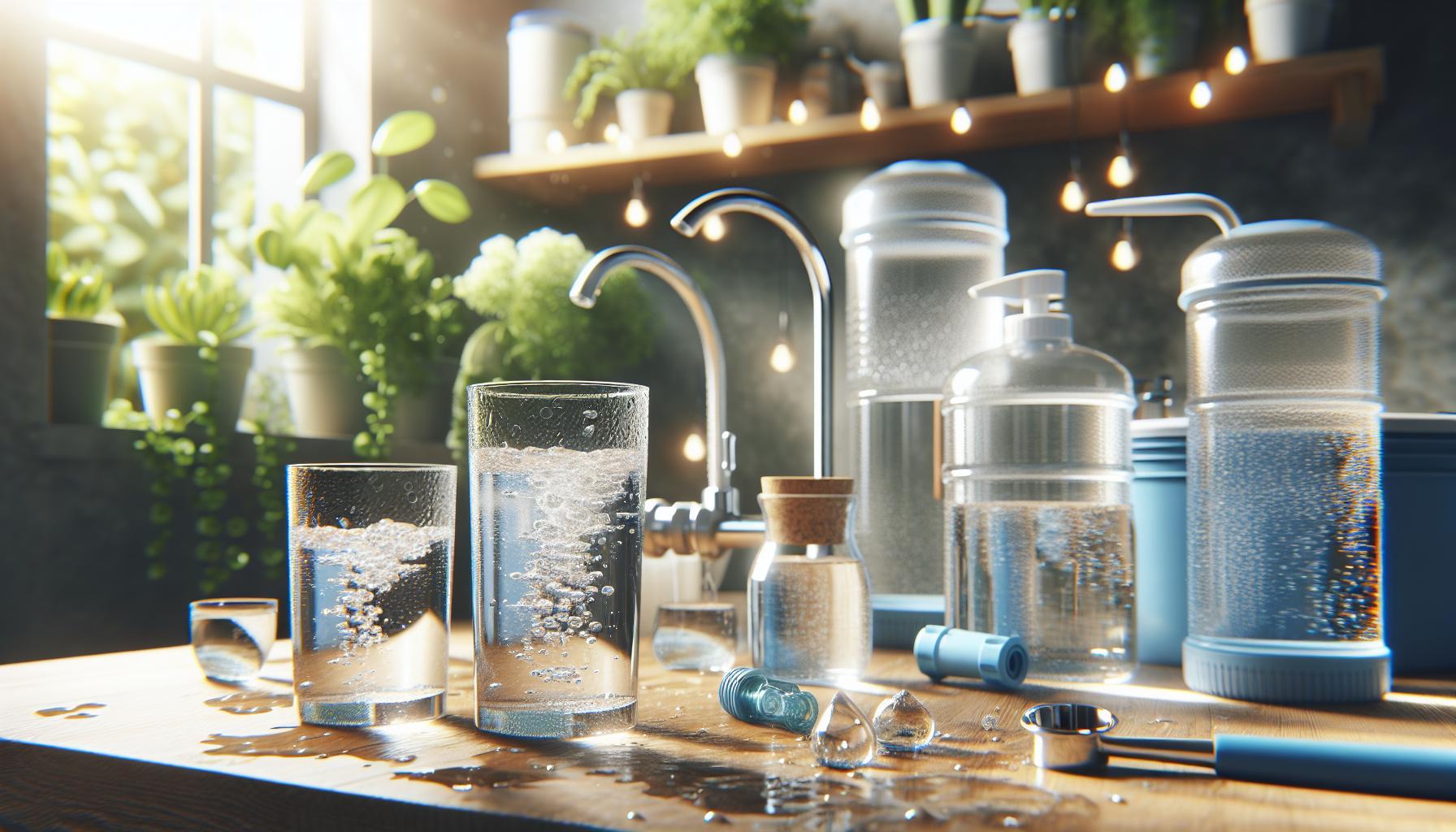
The Role of Hydration: How Much Water Do You Really Need?
It’s surprising how many people underestimate the importance of proper hydration in their daily lives. Water is essential not only for survival but also for optimal bodily functions, including digestion, circulation, and temperature regulation. When discussing the discomfort some experience after drinking water, particularly in relation to stomach issues, understanding how much water our bodies truly need becomes crucial.
Most health guidelines suggest that individuals should aim for about 8 cups (64 ounces) of water daily. However, this is a general rule, and actual needs can vary based on factors such as age, sex, activity level, and climate. Hydration needs can also be influenced by food choices and overall health. For instance, high-sodium foods or those rich in processed sugars can increase water requirements, while a diet rich in fruits and vegetables can contribute to your overall fluid intake.
Signs You May Be Dehydrated
Recognizing dehydration is vital, especially when experimenting with how different hydration levels affect your stomach. Common signs include:
- Thirst
- Dark yellow urine
- Fatigue or dizziness
- Dry skin
If these symptoms are present, so is an urgent need to increase water intake. Conversely, if someone finds that drinking water leads to discomfort or pain—potentially linked to gas or an upset stomach—it may be wise to adjust the quantity and pace at which water is consumed.
Practical Hydration Tips
To help mitigate issues like stomach pain linked to drinking water, consider the following tips:
- Drink steadily throughout the day: Instead of consuming large amounts at once, sip water consistently to reduce potential discomfort.
- Monitor water temperature: Some individuals find that cold water aggravates stomach discomfort, whereas room temperature water can be gentler.
- Consider how water is consumed: Drinking through a straw or while eating can sometimes help in managing the speed of ingestion, leading to less bloating.
In essence, understanding hydration’s role in your health can illuminate why discomfort might occur and how to prevent it. Whether you’re dealing with digestive issues or simply trying to achieve optimal wellness, staying educated about your body’s hydration needs is key.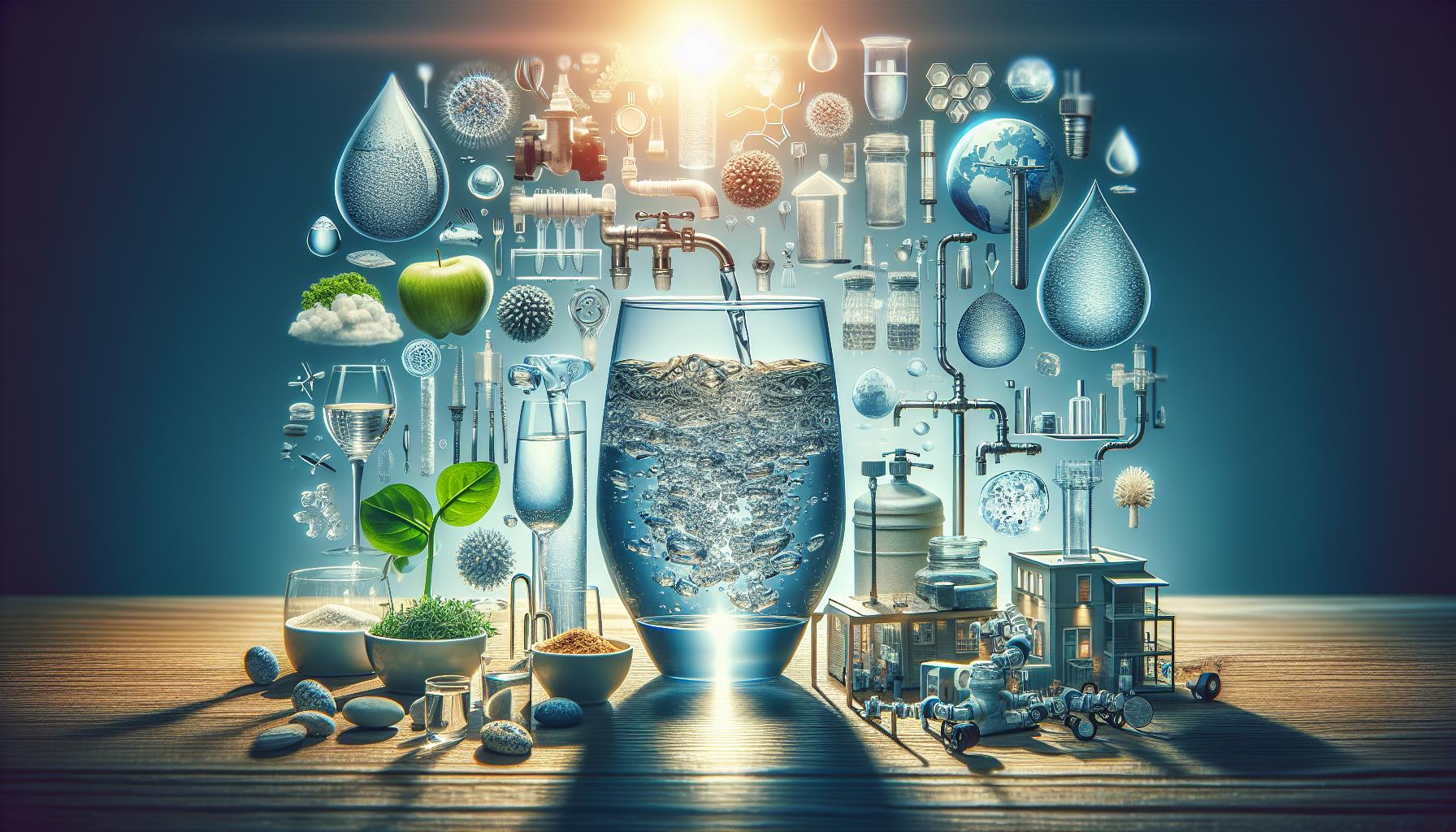
Exploring Potential Food and Drink Interactions
An unexpected discomfort after drinking water can often stem from various food and drink interactions, which is crucial to understand, especially for those who might not realize how their diet influences their body. Many individuals report stomach pain after consuming water, and this could be linked to the timing and composition of their meals. Different foods and beverages can affect how water interacts with the digestive system, potentially leading to pain or discomfort. Recognizing these interactions is essential for managing and alleviating symptoms.
Understanding Food and Drink Interactions
When considering why drinking water may cause stomach pain, one factor to investigate is the presence of certain foods that can alter how your body processes liquids. For example, consuming carbonated beverages along with meals may cause bloating and discomfort when followed by water. Additionally, highly acidic foods or beverages, such as citrus fruits or vinegar-based dressings, can irritate the stomach lining, contributing to discomfort when combined with water consumption.
- Timing Matters: Drinking water immediately after a heavy meal can dilute gastric juices, impacting digestion and possibly leading to a painful sensation.
- Temperature Sensitivity: Cold water might exacerbate stomach issues if ingested after spicy or hot meals, as it could cause the stomach to contract uncomfortably.
- Food Pairing: Combining certain types of food, such as dairy products with high-acid foods, may create a reaction that triggers stomach pain when followed by water.
It is also essential to be mindful of medication interactions that could be aggravated by simultaneous consumption of food and water. Some medications can have altered absorption rates depending on whether they are taken with a full glass of water or with food. For instance, taking a medication on an empty stomach after drinking water may cause irritation or discomfort in the stomach if sensitive to the medication’s contents. Therefore, understanding how your dietary choices align with your hydration habits and medication schedules can greatly influence overall digestive comfort.
Practical Steps to Manage Discomfort
To minimize discomfort when drinking water, consider implementing the following practical strategies:
| Strategy | Benefits |
|---|---|
| Wait to drink water | Allow at least 30 minutes after meals to reduce digestive discomfort. |
| Choose room temperature water | Less likely to trigger stomach contractions compared to cold water. |
| Avoid drinking while eating | Prevents dilution of stomach acids, aiding better digestion. |
By understanding the dynamics between food, drink, and digestion, individuals can make informed choices to minimize discomfort and enhance their digestive health, ultimately addressing the concerns outlined in “Why When I Drink Water My Stomach Hurts? Uncover the Real Cause.”
Tips for Drinking Water Without Discomfort
Drinking water is essential for hydration and overall health, but many people experience discomfort after consuming it. Understanding how to avoid this discomfort can ensure you stay properly hydrated without the added pain. Here are some practical tips to help you enjoy your water without any side effects.
Slow Down Your Intake
One of the common reasons for stomach pain after drinking water is consuming it too quickly. When you drink at a fast pace, your stomach can become overwhelmed, leading to discomfort or cramping. To alleviate this, try the following:
- Take small sips instead of large gulps.
- Set a timer to remind yourself to take a sip every few minutes, especially if you’re very thirsty.
- Use a smaller glass to help control your intake better.
Pay Attention to Water Temperature
The temperature of the water you drink can also affect your stomach’s reaction. Cold water might cause cramps in some individuals, while warm or room temperature water can be gentler on your digestive system. Consider these tips:
- Experiment with lukewarm or herbal-infused water.
- Avoid very cold water if you notice it consistently causes discomfort.
Stay Mindful of Your Stomach’s Condition
Drinking water on an empty stomach can sometimes lead to stomach pain due to the rapid fluid intake. Here’s how you can manage this:
- Try to have a small snack before drinking a large amount of water.
- Consider drinking water after meals to prevent excess stomach acid build-up, which can lead to discomfort.
| Tip | Description |
|---|---|
| Slow Down Your Intake | Consume water in small sips to avoid overwhelming your stomach. |
| Pay Attention to Water Temperature | Drink lukewarm or room temperature water to reduce cramps. |
| Stay Mindful of Your Stomach’s Condition | Have a snack before drinking to mitigate discomfort. |
Incorporating these strategies into your daily routine can significantly help in managing the discomfort associated with drinking water. By taking a little extra time and being mindful of how you hydrate, you can enjoy the benefits of water without the pain.
The Importance of Water Quality: Could Contaminants Be the Culprit?
In the quest for good health, clean water is often taken for granted, yet it plays a crucial role in our overall well-being. Many individuals may find themselves wondering, “Why when I drink water my stomach hurts?” This discomfort can often be traced back to one critical element—water quality. It’s not just the temperature or the mineral content; contaminants in drinking water can significantly impact digestive health, potentially leading to reactions that cause discomfort.
Understanding the common water contaminants and their effects is key to addressing health issues related to hydration. Among the most frequently found contaminants in U.S. drinking water are substances like lead, arsenic, and pesticides, which can affect not only your stomach but also your long-term health. Physical contaminants such as silt or rocks, while not necessarily harmful in small amounts, can contribute to digestive issues if present in excess. Moreover, microbiological contaminants like E. coli can pose serious health risks, causing gastrointestinal distress and presenting symptoms that could easily align with the feelings of nausea or discomfort that accompany some experiences of drinking water.
Taking action to ensure that the water you consume is safe should be a priority. Here are some actionable steps:
- Test Your Water: Use home testing kits or local water quality reports to identify contaminants in your drinking supply.
- Use Filtration Systems: Equipped with the right filtration technology, they can remove harmful substances from your drinking water, alleviating potential stomach issues.
- Stay Informed: Regularly check databases such as the EWG Tap Water Database to understand the contaminants that may affect your local water source [[2]](https://www.ewg.org/tapwater/).
By addressing these contaminants head-on, individuals can better protect themselves from the adverse effects associated with poor water quality, including the distressing symptoms that prompt questions such as, “Why when I drink water my stomach hurts?” The importance of maintaining water quality cannot be overstated, as it is fundamentally linked to the health of one’s digestive system and overall wellness.
Lifestyle Changes to Alleviate Stomach Pain from Water Intake
Experiencing stomach pain after drinking water can be a perplexing issue, but implementing specific lifestyle changes may help alleviate discomfort. It’s essential to understand that hydration plays a vital role in our overall health, and when it causes distress, adjustments can make a significant difference. Oftentimes, the pain can be attributed to various factors such as rapid consumption, temperature of the water, or even underlying digestive issues. By adopting mindful habits around water intake, individuals can reduce the likelihood of discomfort and promote better digestive health.
Mindful Drinking Techniques
To ease stomach pain associated with drinking water, it’s beneficial to pay attention to how you consume fluids. Consider the following strategies:
- Slow Down: Instead of gulping large amounts, sip water slowly. This gradual approach can prevent overloading your stomach and allow your digestive system to adjust.
- Room Temperature Water: Drinking water at a moderate temperature may help minimize reaction in the stomach compared to cold or hot liquids, which can irritate the digestive tract.
- Small Amounts More Frequently: Rather than consuming a large glass at once, opt for smaller amounts throughout the day. This method can aid hydration while reducing the chances of discomfort.
Stay Aware of Surrounding Factors
Various other components can contribute to stomach pain after drinking water. Make note of the following factors:
- Timing of Water Intake: Drinking water immediately before or after meals could lead to feeling overly full or discomfort. Try spacing out your water intake to see if it alleviates the issue.
- Food Choices: Consider what you are eating alongside your water. Certain foods that are known to cause gas or bloating may compound the discomfort associated with drinking water.
Hydration Alternatives
If water consistently causes discomfort, exploring alternative hydration methods might be advantageous:
- Herbal Teas: Certain non-caffeinated herbal teas (like chamomile or peppermint) can soothe the digestive system while providing hydration.
- Infused Waters: Adding slices of fruits or herbs to your water can enhance flavor, making it easier to drink small amounts throughout the day without distress.
Implementing these lifestyle changes can help identify the specific reasons behind why drinking water causes stomach pain, creating a more comfortable and enjoyable hydration experience. Engaging actively with your drinking habits not only promotes better digestive health but also ensures that you remain properly hydrated.
Faq
Why When I Drink Water My Stomach Hurts? Uncover the Real Cause?
Stomach pain after drinking water can be due to several factors including drinking too quickly or underlying health issues. It’s essential to identify the specific cause for effective relief.
Some individuals may experience discomfort from consuming water too quickly, leading to an overload of fluids in the stomach, resulting in stretching and pain. Additionally, underlying conditions like gastritis or food sensitivities may also contribute to this issue. If discomfort persists, consider consulting a healthcare professional.
What are the common reasons my stomach hurts when I drink water?
Common reasons include drinking too fast, additives in water, or medical conditions. Simple changes like sipping slowly can alleviate discomfort.
For example, ice-cold water can shock the stomach and disrupt digestion. Moreover, if you’ve been exposed to contaminants like lead, it could also be a concern. Always ensure your water source is safe.
Can drinking cold water cause stomach pain?
Yes, drinking cold water can sometimes cause stomach pain by shocking your digestive system. This is particularly noticeable during or after meals.
When consumed with food, cold water may impede digestion, leading to discomfort. It’s advisable to drink water at a comfortable temperature to avoid these issues. If discomfort frequently occurs, consider exploring other temperatures of water.
How can I prevent stomach pain when drinking water?
To prevent stomach pain, drink water slowly and ensure it’s at a comfortable temperature. Avoid drinking large amounts at once.
Sipping water gradually allows your stomach to adjust, reducing the risk of pain or discomfort. Additionally, opting for clean, filtered water can help minimize sensitivity to additives.
Why does my stomach hurt after drinking water with meals?
Drinking water during meals can cause stomach pain by diluting digestive enzymes and causing bloating. It can interfere with proper digestion.
To optimize digestion, consider waiting a while after meals to hydrate. This approach can help ensure that your digestive process remains efficient, reducing the chances of discomfort.
When should I see a doctor about my stomach pain after drinking water?
If stomach pain is severe or persistent, it’s crucial to consult a healthcare professional. Underlying conditions may require attention.
Particularly, if you have associated symptoms like nausea, vomiting, or unusual changes in bowel habits, seeking medical advice is essential. A professional can help identify any serious issues.
Is my stomach pain from drinking water linked to anxiety?
Yes, anxiety can contribute to gastrointestinal symptoms, including stomach pain. Stress and nerves can affect digestion.
If your stomach hurts after drinking water during stressful times, your body may react by tightening the intestines. Implementing relaxation techniques or consulting a therapist might help improve your symptoms.
In Retrospect
In conclusion, if you’re experiencing stomach pain after drinking water, it’s important to understand the potential causes, which can range from digestive issues to temperature sensitivities. Simple habits like drinking slowly, avoiding overly cold water, and ensuring you’re not consuming excessive amounts at once may alleviate discomfort. Remember, staying hydrated is crucial for health, so making small adjustments to your drinking habits can lead to significant improvements. For those continuing to experience pain, consulting a healthcare professional is always a wise choice. Explore our other articles for more tips on hydration and gastrointestinal health, and empower yourself with knowledge to improve your well-being!

